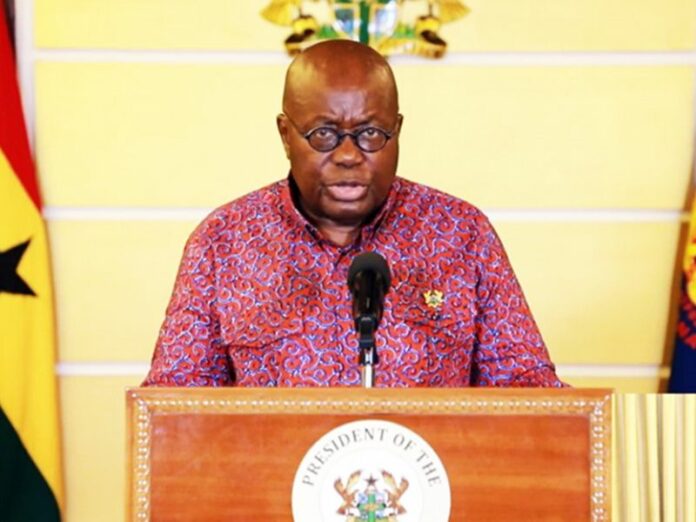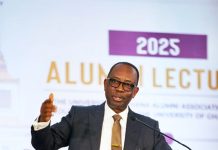President Nana Akufo-Addo has urged Ghanaians to manage their economic expectations as access to the International Monetary Fund (IMF) will not spell the immediate end of their economic difficulties.
He disclosed that going to the IMF was a painful decision to make, as it was not part of his government’s economic transformation plan.
The IMF deal, however, would send a positive message to trading partners, creditors and investors, as well see a resumption in infrastructure projects, he said.
“A positive message that will be underpinned by discipline, hard work and enterprise with which we execute the programme, should lead to the restoration of confidence of avenues close to us this past year and half,” he said during his COVID-19 public address.
The President said he was counting on the resolute mindset and attitude of citizens to help the country overcome the economic challenge soon.
“I have no doubt that we are on the right path and we soon start to see significant improvement in the economy and in the living standards of Ghanaians,” he added.
Speaking on the COVID-19 situation, he said the pandemic was over and in that regard he had ended the COVID- 19 update address.
The public addresses have been delivered 29 times over the past three years.
He also announced dissolving the COVID-19 Trust Fund, instrumental in helping government raise additional funds from the public and private entities to fight the pandemic.
On Friday July 1, 2022 President Akufo-Addo instructed the Finance Minister, Ken Ofori-Atta to commence formal engagements with the International Monetary Fund (IMF).
After almost a year of negotiations, the IMF on May 17, 2023 announced that its Executive Board has approved a 36-month arrangement under the Extended Credit Facility (ECF).
The amount was equivalent to Special Drawing Rights (SDR) 2.242 billion valued at US$3 billion, or 304 per cent of quota.
The programme was based on the government’s Post COVID-19 Programme for Economic Growth (PC-PEG), which sought to restore macroeconomic stability and debt sustainability with wide ranging reforms for inclusive growth.
The Executive Board’s decision enabled an immediate disbursement to Ghana US$600 million, equivalent to SDR 451.4 million.
Large external shocks in recent years have exacerbated Ghana’s pre-existing fiscal and debt vulnerabilities, resulting in a loss of international market access, increasingly constrained domestic financing, and reliance on monetary financing of the government.
Challenges of decreasing international reserves, Cedi depreciation, rising inflation and plummeting domestic investor confidence eventually triggered an acute crisis.
The Government has, through the Ministry of Finance, taken bold steps to tackle challenges, by measures such as accelerating fiscal adjustment.
The Government also launched a comprehensive debt restructuring to address severe financing constraints and the unsustainable public debt.
The IMF has, however, indicated that securing a timely debt restructuring agreements with external creditors will be essential for the successful implementation of the new ECF arrangement.
Key policies under the IMF programme include large and frontloaded fiscal consolidation to bring public finances back on a sustainable path, complemented by efforts to protect the vulnerable.
The adjustment effort will be supported by ambitious structural reforms in the areas of tax policy, revenue administration, and public financial management, as well as steps to address weaknesses in the energy and cocoa sectors.
Appropriately tight monetary and flexible exchange rate policies are expected to bring inflation back to single digits and rebuild international reserves.
The programme also has a strong focus on preserving financial stability and encouraging private investment and growth.
“The programme will help Ghana overcome immediate policy and financing challenges, including through its catalytic effect in mobilising external financing from development partners and providing a framework for the successful completion of the ongoing debt restructuring,” the IMF said in a statement on May 17, 2023.
GNA









